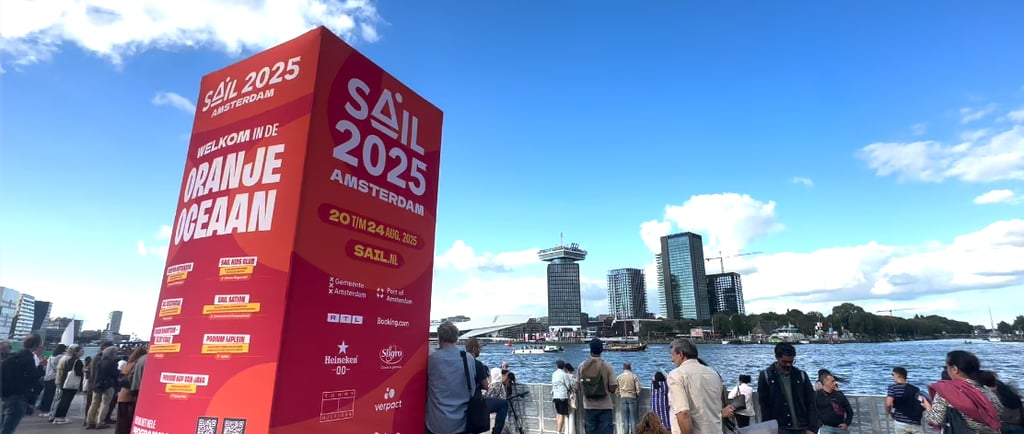
Amsterdam Sail 2025: 50 Years of Tall Ships
Join us for the historic Amsterdam Sail 2025, celebrating the 50th anniversary of this magnificent festival and the city's 750th birthday. Experience the beauty of tall ships and reflect on sustainable sailing in a world dominated by modern shipping pollution.
SUSTAINBLE FUTURE
Lalit Bhusal
8/24/20252 min read



Amsterdam Sail 2025 is a truly historic event, not only celebrating the 50th anniversary of this magnificent festival but also marking the city's 750th birthday. As hundreds of the world's most impressive tall ships grace our waters, they offer a powerful reminder of a time when sailing was an entirely sustainable act, powered by nothing but the wind. This beautiful spectacle stands in stark contrast to the modern shipping industry, which, despite its efficiency, is one of the world's largest polluters.
While the modern shipping industry is the backbone of global trade, its reliance on fossil fuels comes at a steep environmental and human cost. Globally, the maritime shipping sector is a significant contributor to air pollution. It's responsible for a large percentage of annual emissions of nitrogen oxides (NOx) and sulfur oxides (SOx), which can be far more polluting than land-based transport. The fuel used in many large ships, often referred to as "bunker fuel," is a low-grade, high-sulfur diesel that, when burned, releases a toxic cocktail of pollutants.
The effects of this pollution on human life are devastating. Emissions from ships contribute to poor air quality in coastal areas and port cities, leading to a higher incidence of respiratory illnesses like asthma, as well as heart disease and cancer. Fine particulate matter (PM2.5) from ship exhausts can penetrate deep into the lungs and bloodstream, causing systemic damage. According to some studies, this pollution is responsible for hundreds of thousands of premature deaths annually.
But the story doesn't end with the problem; it also points to solutions. Just as the ships at SAIL 2025 relied on nature's power, modern innovations are now looking to embrace a greener future. The shift toward eco-friendly shipping is already underway with several promising solutions:
Wind-Assisted Propulsion: Old-school sails are making a high-tech comeback. Modern systems like rigid sails, kites, and rotor sails are being fitted onto cargo ships to harness wind power, drastically reducing fuel consumption and emissions.
Alternative Fuels: The industry is moving away from heavy fuel oil toward cleaner alternatives such as biofuels, liquefied natural gas (LNG), and even hydrogen and ammonia, which offer the potential for near-zero emissions.
Electric and Hybrid Propulsion: While still a challenge for long-haul voyages, electric and hybrid ships are becoming a reality for short-sea and inland routes, especially with the development of massive battery banks.
Smart Technology: AI and IoT are being used to optimize shipping routes, predict maintenance needs, and manage fuel consumption in real-time, making every voyage as efficient as possible.
The My Name Is Climate Foundation is committed to highlighting these solutions and inspiring a greener future. The video we are sharing captures the essence of this transition—from the romantic history of wind-powered sailing to the urgent need for a new era of sustainable maritime transport.
Enjoy our video, which was recorded by us! By celebrating the legacy of wind at SAIL 2025, we are also making a powerful call to action for a cleaner, healthier planet.
Please watch our video and help us spread the word. Don't forget to subscribe to our channel and follow us on all social media platforms to support our mission. We also encourage you to become part of the My Name Is Climate Foundation project globally and help us create a meaningful impact.
Website: www.mynameisclimate.com
Socials: @mynameisclimate



